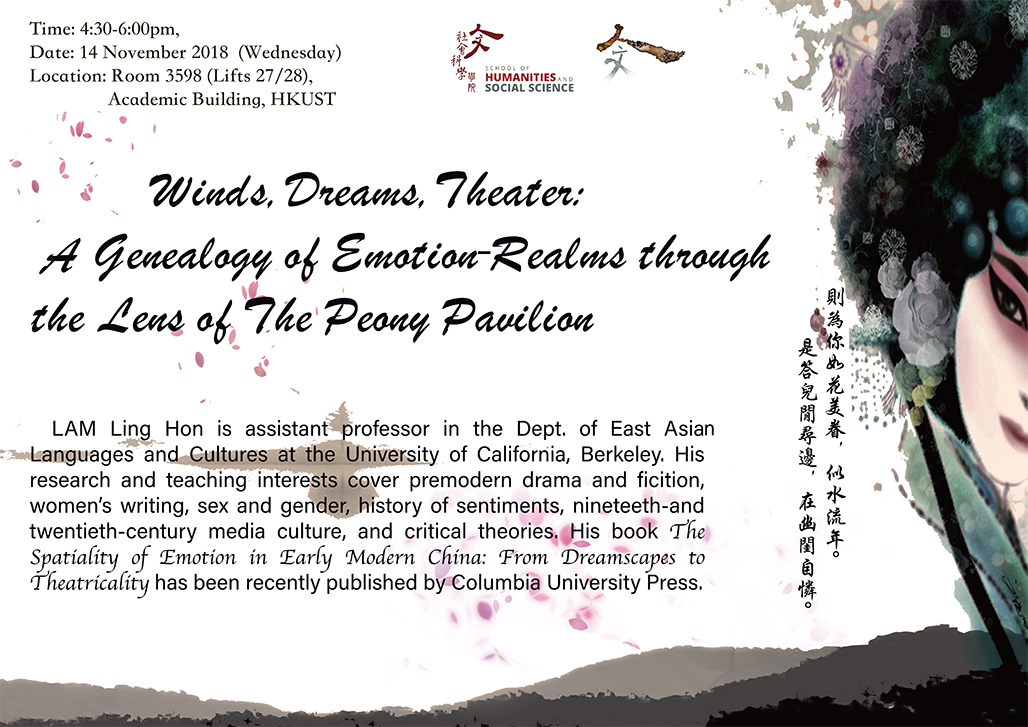Abstract:
Emotion takes place. Rather than an inner state of mind in response to the outside world, emotion per se is spatial, at turns embedding us from without, transporting us somewhere else, or putting us ahead of ourselves. I give a revisionist history of emotions in Chinese literature and culture centered on the idea of emotion as space, which the Chinese call “emotion-realm” (qingjing). If The Peony Pavilion (Mudan ting, 1598) is the romantic play par excellence in early modern China, it is not because, as many assume, it celebrates emotion as the innermost essence of an liberated individual. Rather, it is because the play eloquently encapsulates the three major historical regimes of the spatiality of emotion—namely, winds, dreamscapes, and theatricality. As a capsule of these various regimes, The Peony Pavilion has deployed them in an anachronistic juxtaposition, obliterating their timeline and structural differences. My reading of the play is therefore an archaeological one, sorting out the layers of sedimentation, through which we can glimpse into the subtle transformation of Chinese theater and subject formation—of which the transfiguration of the dream and the rise of the media environment are telling symptoms—as an aspect of the genealogy of emotion-realms.
huma@ust.hk
